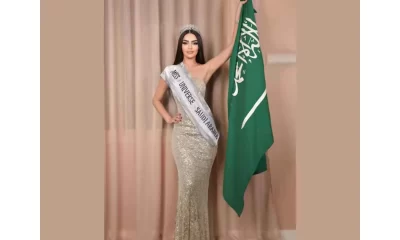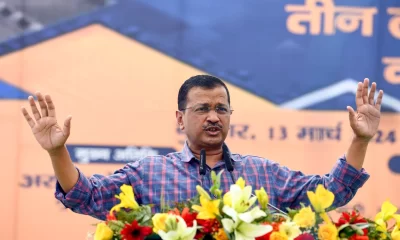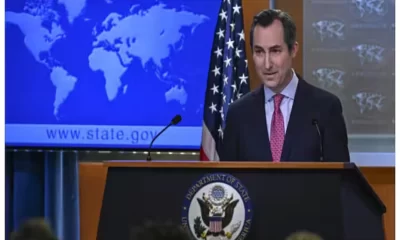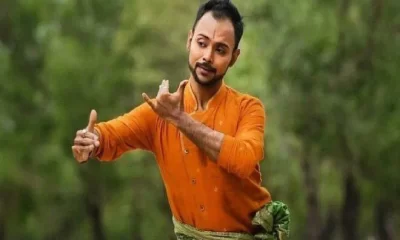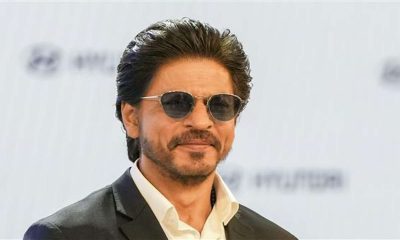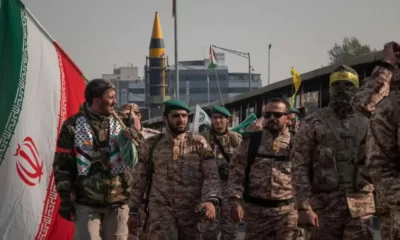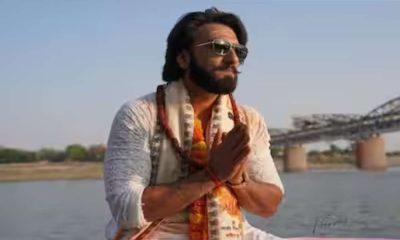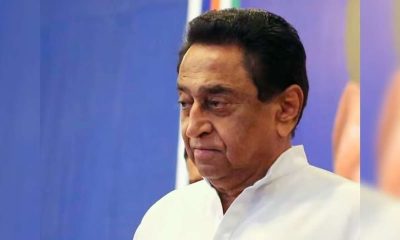Latest world news
De-escalation begins in Saudi Qatar crisis

[vc_row][vc_column][vc_column_text]US sells F-15 fighters, Turkey, Iran supply food
The Saudi-Qatar crisis is turning in Doha’s favor with signing of fresh F-15 fighter deal between US and Qatar and food supplies coming from Iran and Turkey. This was indicated by Saudi Foreign Minister Adel-al-Jubeir, when he, on Friday, called Qatar as “ally” and stated that a list of “grievances” involving Qatar is being drawn up and will be presented to that country.
Speaking in London, Saudi Foreign Minister called upon Qatar to respond to what he claimed were international and regional calls for it to halt its support for “extremism and terrorism”. He softened his language saying, “I would not call them demands. I would say it is a list of grievances that need to be addressed and that the Qataris need to fix.” He also said that there was no intention of harming the Qatari people.
On Thursday, amid the ongoing crisis in the Middle East, Qatar signed a deal to purchase F-15 jet fighters from US for 12 billion dollars. After signing the deal with US Defence Secretary Jum Mattis in Washington, Qatari Defense Minister Khalid Al-Attiyah was quoted saying that the agreement underscores the “longstanding commitment of the state of Qatar in jointly working with our friends and allies in the US in advancing our military cooperation for closer strategic collaboration in our fight to counter violent extremism and promote peace and stability in our region and beyond”.
The countries which have severed their ties with Qatar include Saudi Arabia, Bahrain, UAE, Egypt, Comoros, Maldives, Mauritania, Senegal, one of the three fragile governments in Libya and government in exile of Yemen. Chad, Djibouti, Jordan and Niger have downgraded their ties with Qatar. However France, Iran, Kuwait, Turkey and USA have offered to mediate.
The Saudi led bloc of nations simultaneously cut off sea and air links with Qatar and ordered Qatari nationals to leave their countries within 14 days.
Iran and Trukey have started supplying food items and drinking water to Qatar. Several plane loads and ships from Iran have already arrived in Qatar. One high ranking Iranian official was quoted saying that Iran was capable of supplying food items to ten states of Qatar size.
Immediately after severing ties, Saudi Arabia and its allies issued a list of 59 people and 12 groups with links to Qatar alleging that they have ties to “terrorism”. The list included several prominent charities that carry out life saving work across the Middle East including Syria, Yemen, Sudan and Palestine. The Qatari government rejected the allegations as “baseless”.
Meanwhile, Turkey’s Foreign Minister Mevlut Cavusolgu held talks with King Salman bin Abdulaziz on Friday in Mekkah. Earlier he travelled to Doha to meet Qatar’s Emir and Foreign Minister.
Kuwait’s Emir Sheikh Sabah al-Ahmad Al Sabah, which has not followed Saudi “advice to brotherly states” to cut ties with Qatar, has also been trying to mediate.
US Secretary of State Rex Tillerson, has also indicated his priority to resolve the Qatar crisis by cancelling his scheduled trip to Mexico for participating in Organization of American States (OAS) meeting next week.
Tamara Kharroub, a senior analyst and assistant executive at Arab Centre in Washington, told Aljazeera that Tillerson’s latest move is “a clear sign that this is a priority and in the next week, we will see some serious efforts to mediate and resolve the conflict”. She further said, “Now we hear from Saudi Arabia of a list of grievances, rather than demands. That I believe is a signal that Saudi Arabia is not intending to escalate this crisis any further.”[/vc_column_text][/vc_column][/vc_row]
Latest world news
Bigg Boss 14 contestant Rahul Vaidya struggles walking in knee deep water, compares Dubai rains with Mumbai floods
Singer and TV personality Rahul Vaidya was recently stranded in the Dubai rains.

Rahul Vaidya, who was in Dubai ahead of his show which was scheduled to take place today, left the country due to heavy rains and reached Kolkata. The artist shared on social media his encounters in the UAE city, including challenges like walking through knee-deep water. Rahul provided an update regarding the heavy rainfall in Dubai on his Instagram profile.
The Bigg Boss 14 contestant revealed that he was in Kolkata and prepared to do an evening performance. Recalling the terrifying period he went through, Vaidya said there was a lot of confusion and panic in Dubai. The situation was similar to that when heavy floods hit Mumbai in 2005.
Vaiday also posted seval other images and videos of cars that were underwater and flooded roadways. The Bigg Boss 14 contestant, who shared his ordeal, claimed that even though it had just rained for two hours, the situation was dire.
In one of the video, which went viral he can be seen struggling in walking in knee-deep water. He can be also seen holding his sneakers in one hand and with other hand he was seen managing other things.
This is the result of the two hours of rain that it had, he can be heard saying in the video. Vidya also said he dosen’t believe Dubai is accustomed to a lot of rain. Everything had stopped working, he remarked.
After taking part in the first season of the singing reality show Indian Idol, Rahul Vaidya gained widespread recognition. In addition to Bigg Boss, he took part in Khatron Ke Khiladi 11.
Meanwhile, heavy rains that triggered flooding in the UAE and Bahrain, which left 18 people dead in Oman on Sunday and Monday, have paralyzed the financial hub of the Middle East, Dubai.
A lot of incoming flights were diverted from Dubai’s international airport because of the rain. At 7:26 p.m., the busiest airport in the world for foreign visitors stopped accepting new arrivals; a gradual resumption was announced for more than two hours later.
Images of planes navigating flooded tarmacs are making the rounds on social media.
According to pictures shared on social media, the flagship malls Dubai Mall and Mall of the Emirates both experienced heavy floods, while at least one Dubai Metro station had water up to the ankles.
There were several road collapses, severe flooding in residential areas, and numerous reports of leaks from windows, doors, and roofs.
Due to the unfavourable weather, schools around the United Arab Emirates were forced to close, and as more storms are predicted, the closures are anticipated to last until Wednesday. The government of Dubai allowed its staff to work remotely till this Wednesday.
Latest world news
Dubai sky turns green during storm in UAE, video goes viral
The UAE witnessed record-breaking rainfall on Tuesday and the National Centre of Meteorology recorded 254 mm of rainfall in less than 24 hrs in the Khatm Al Shakla area in Al Ain.

1 person was killed in UAE as it witnessed heavy rainfall on Tuesday, stranding commuters, flooding roads, disrupting trains and flights and resulting in water leakage from mall ceilings. The UAE witnessed record-breaking rainfall on Tuesday and the National Centre of Meteorology recorded 254 mm of rainfall in less than 24 hrs in the Khatm Al Shakla area in Al Ain. It is being said that the rainfall was the highest documented since the start of data collection in 1949.
The heavy rainfall in UAE came days after a similar situation in neighbouring Oman, where 13 people were killed in flash floods. Many parts of Oman saw torrential rains, which caused students to be trapped in buses and swept away motorists and trapped people in their homes.
Videos from Dubai circulating on social media showed widespread waterlogging on roads in Abu Dhabi, Dubai and other important cities. This left daily commuters in cars and other vehicles struggling to get back home. Dubai metro station too was seen flooded and closed.
One such video circulating on social media shows the aerial view of the city of Dubai from the top of a building. In the video the stormy winds are seen blowing over the city of Dubai. As the storm intensifies the Dubai sky turns green and ultimately gets covered by heavy rainfall. The video has gone viral on social media with more than 1.1 million views.
Another video showed water leakage from the ceilings of shopping malls, flooding the floors and destroying goods. A video which was shot in the famous Mall of the Emirates, showed pieces of ceiling falling as the rainwater gushed inside. Videos from many outlets of the Deira City Centre mall chain showed escalators being rendered unusable. Majid Al Futtaim, the company which owns the Mall of Emirates, said that the shopping complexes have been kept open and the customers are being sent away from the flooded areas.
India News
Sri Lankan Minister Douglas Devananda says statements on reclaiming Katchatheevu island from Sri Lanka have no ground
Devananda told the media on Thursday that it is not unusual to hear such claims and counterclaims about Katchatheevu as elections are taking place in India.
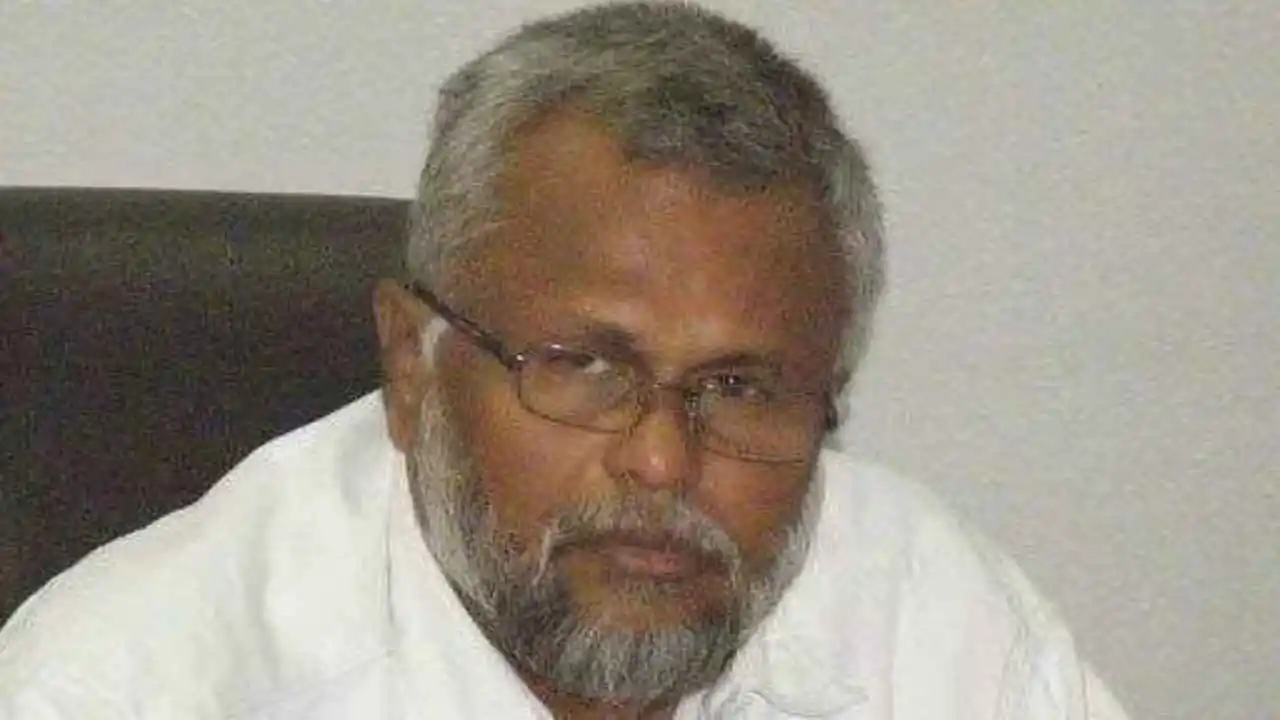
Sri Lankan Minister Douglas Devananda has said the statements from some political leaders in India on reclaiming Katchatheevu from the island nation have no ground. He told the media on Thursday that it is not unusual to hear such claims and counterclaims about the strategic island as elections are taking place in India.
The Sri Lankan Minister said he thought India is acting on its interests to secure this place to ensure Sri Lankan fishermen would not have any access to that area and that Sri Lanka should not claim any rights in that resourceful area. According to the 1974 agreement, Devananda said Indian and Sri Lankan fishermen can go fishing in the territorial waters of both countries until the pact was reviewed and amended in 1976.
The amended agreement resulted in fishermen from both countries being barred from fishing in neighboring waters. India’s ministry of External Affairs (MEA) on Thursday steered clear of the row surrounding Katchatheevu island. To a volley of questions on the Katchatheevu issue, MEA spokesperson Randhir Jaiswal reffered to External affairs Minister S Jaishankar’s recent comments on the matter.
He said he would like to talk about the issue that has been raised. He added the External Affairs minister has spoken to the press here in Delhi and also in Gujarat and has clarified all the issues. He said everyone should look into the press engagements and they would find the answers to their questions there.
The remarks from Devananda, a Sri Lankan Tamil, came days after the Narendra Modi government accused the Congress and its ally DMK in Tamil Nadu of overlooking national interests by handing over Katchatheevu island to Sri Lanka in 1974. The BJP has also been slamming the 2 parties for not ensuring the rights of the fishermen wanting to fish in waters around the island.
-
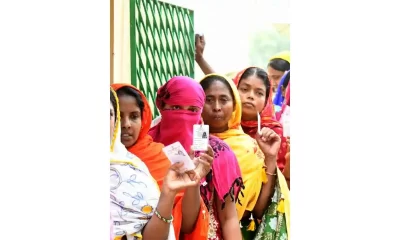
 2024 Lok Sabha Elections9 hours ago
2024 Lok Sabha Elections9 hours agoPrime Minister Narendra Modi urges citizens to vote in record numbers as voting for first phase of Lok Sabha elections begins on 102 seats across India
-
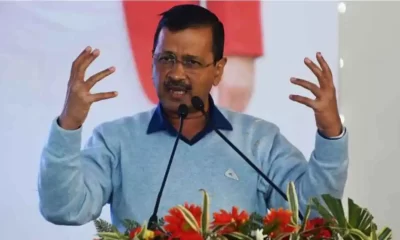
 India News24 hours ago
India News24 hours agoEnforcement Directorate says Arvind Kejriwal is deliberately eating mangoes, sweets, taking sugar with tea to increase his blood sugar level and create ground for bail
-
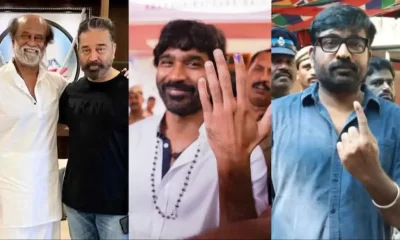
 2024 Lok Sabha Elections8 hours ago
2024 Lok Sabha Elections8 hours agoKamal Haasan, Rajinikanth, Vijay Sethupathi, Dhanush vote in Chennai
-
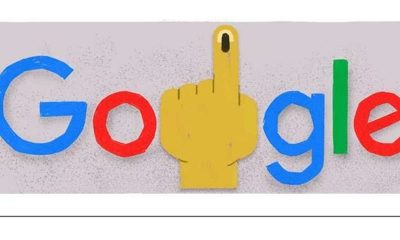
 2024 Lok Sabha Elections8 hours ago
2024 Lok Sabha Elections8 hours agoLok Sabha elections 2024: Google Doodle marks the start of polls with index finger voting symbol
-
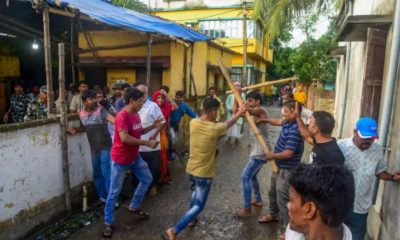
 2024 Lok Sabha Elections8 hours ago
2024 Lok Sabha Elections8 hours agoLok Sabha elections 2024: TMC, BJP workers clash in West Bengal’s Cooh Behar ahead of voting
-
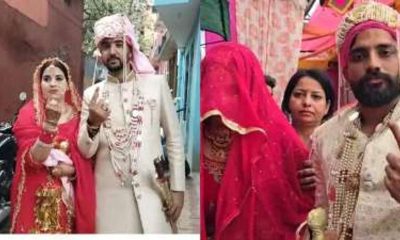
 2024 Lok Sabha Elections7 hours ago
2024 Lok Sabha Elections7 hours agoLok Sabha elections 2024: Newly married couple cast vote in Jammu and Kashmir’s Udhampur, video goes viral
-

 Entertainment4 hours ago
Entertainment4 hours agoDo Aur Do Pyaar social media review: Social media users say Vidya Balan, Pratik Gandhi deliver standout performances in this adorable film
-
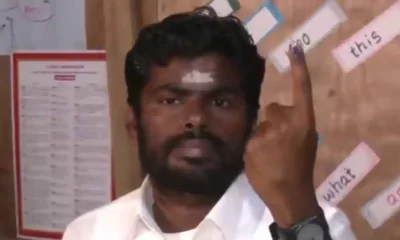
 2024 Lok Sabha Elections7 hours ago
2024 Lok Sabha Elections7 hours agoTamil Nadu BJP chief K Annamalai says party will sweep Karnataka and emerge victorious in Telangana, accuses DMK, AIADMK of influencing voters in Coimbatore

